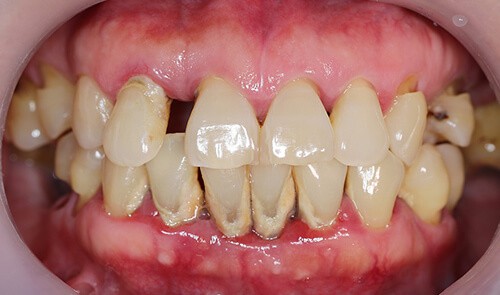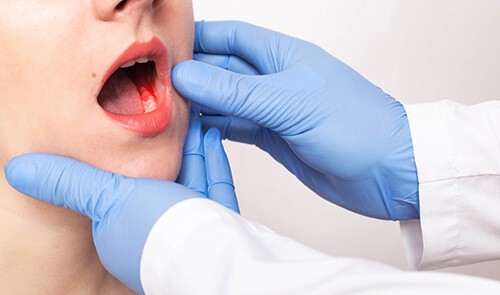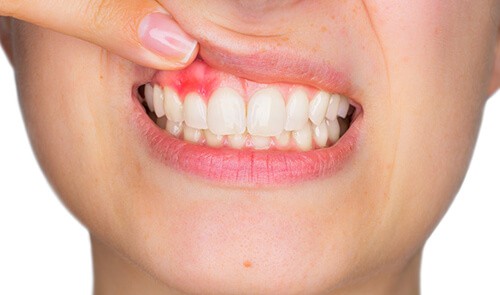FAQs & Fact Sheets
Coastal Periodontics has prepared the following fact sheets that contain more detailed information on Periodontics and oral health.

FAQs
With good oral hygiene and regular professional care, your teeth are meant to last a lifetime. However, periodontal (gum) disease can lead to tooth loss if left untreated. Gum disease is the primary cause of tooth loss in adults 35 and over.
There is proven research that indicates up to 30% of the population may be genetically susceptible to gum disease. Despite constant oral care habits, these people may be six times more likely to develop periodontal disease. Genetic tests can be conducted to identify these people even before they show signs of disease, and providing them early intervention treatment may help them keep their teeth for a lifetime.
The latest research on periodontal disease has found that there is a link between gum disease and other health problems. This includes, but is not limited to: heart & respiratory diseases, pre-term & low birth-weight babies, stroke, osteoporosis, and diabetes.
Gum disease is not a small infection. It can lead to tooth loss – which will require dentures and a consequential lifestyle change. Gum disease will also result in changes in your appearance, breath, and your ability to chew food.
Consider this – the mass of tissue in the oral cavity is equivalent to the skin on your arm that extends from the wrist to the elbow. If this area were red, swollen and infected, you would visit a doctor.
Bleeding gums are one of nine gum disease symptoms. Think of gum tissue as the skin on your hand. If your hands bled every time you washed them, you would know something is wrong.
Other signs of gum disease may include: red, swollen or tender gums, sores in your mouth, gums that have pulled away from the teeth, persistent bad breath, pus between the teeth and gums (leaving bad breath), loose or separating teeth, a change in the way the teeth fit together, and a change in the fit of partial dentures.
New ways of treating gum disease – such as local anaesthesia and over-the-counter medications – have made patients’ treatment experiences pleasant and comfortable. Many patients find that they are back to their normal routines on the same day or by the next day.
You should always maintain a strong level of dental care and regular dentist visits to ensure any problems are detected in their earliest stages. You should always inform your dentist of any signs or symptoms of gum disease are present; or if any changes in your overall health or medications occurred in between visits.
Most importantly, you should ask your dentist about your periodontal health and what method was used to evaluate its condition. This ensures that you and your dentist are working as a team in order to identify subtle changes that may occur in the oral cavity.
Dental implants are a permanent tooth replacement option for teeth that have been lost as a consequence of trauma, injury or periodontal disease. Dental implants can look and feel so natural that many patients forget that they have ever lost a tooth. Patients who have periodontal disease or a history of periodontal disease may be more prone to developing periodontal disease around implants. This is taken into consideration by Dr Bourke when advising you of the appropriate treatment.
Yes, periodontal disease is the number-one cause of tooth loss. According to the 1996 American Dental Association/Colgate survey, gum disease is a more pressing oral health concern than tooth decay by a 2-to-1 margin.
Research demonstrates that antibiotics can be a helpful adjunct but not necessary to treating periodontal disease. Treatment can be successfully performed without the use of antibiotics. Also, medical and dental communities are concerned about the overuse of these medications in treating infections because of the possibility of the development of antibiotic-resistant strains of bacteria. This overuse would be detrimental to patients if they develop a life-threatening illness for which antibiotics would no longer be helpful.
Teeth and gums are affected during pregnancy like other tissues in the body. In order to decrease the risk of damaging the gums and tissues surrounding the teeth, pregnant women should schedule an appointment for a periodontal evaluation. Unhealthy gums during pregnancy may increase the risk of pre-term births and low birth weight babies.
Australian Society of Periodontolgy
www.asp.asn.au
Australian and New Zealand Academy of Periodontics
www.perio.org.au
American Academy of Periodontology
www.perio.org
Australian Society of Implantology
www.asid.org.au
Australian Dental Association
www.ada.org.au
Training
Micro-surgical training, by Dr Allan Edwards in Dallas USA. And Prof. Giovanni Zucchelli and Ongoing professional training and educational conferences and courses.





